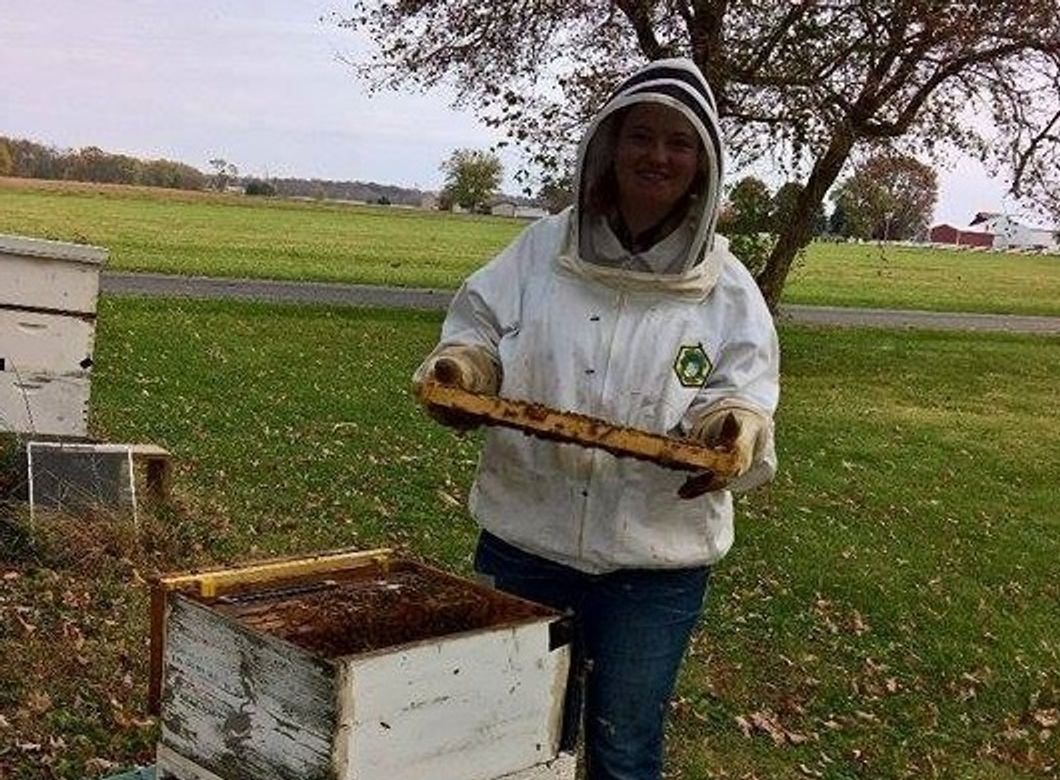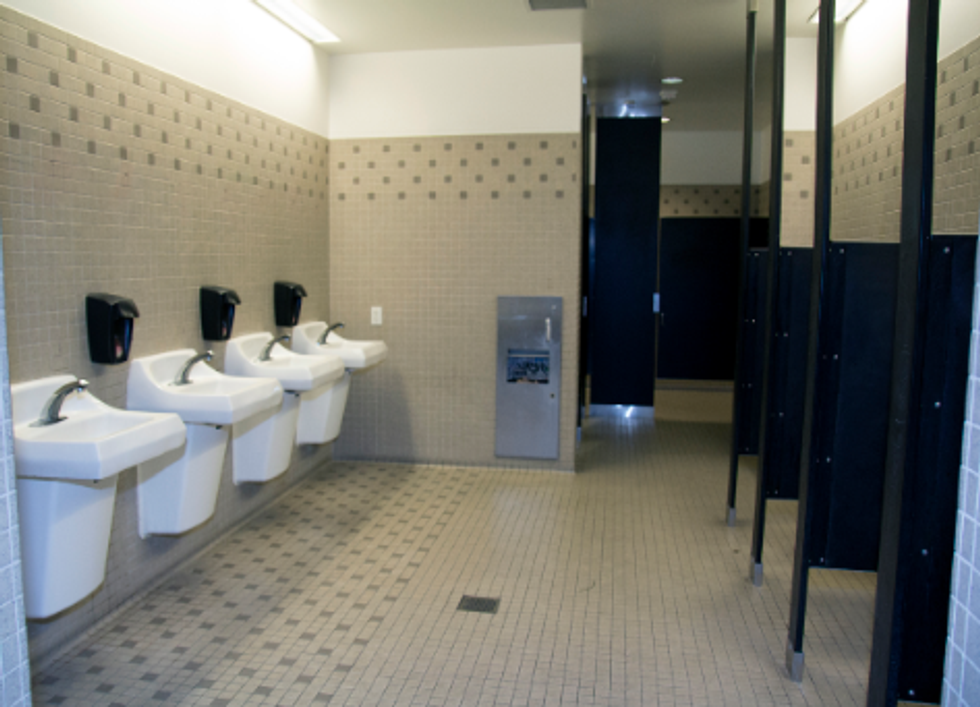Hello there! As a new member to the beekeeping world I feel compelled to share my experiences with you. Firstly, if you have romanticized beekeeping as this beautifully magical thing that helps nature and gives you a yummy topping for your toast, you're sorely mistaken. I did it, I think all of us who have never done something have this flawless and perfect image of how it should be and happen. Well I'm here to tell you that beekeeping is not flawless and it's not in anyway shape or form easy, but it is rewarding and extremely fun.
So how did I get interested in bees? Let's face it, most people see a bee and run for their lives. Why would anyone be mad enough to play with literally 80,000 of them at once? And no, I didn't type that wrong. A healthy and thriving hive can have anywhere from 20,000 to 80,000 worker bees in it at one time. See, this is also educational!
My interest in Honey Bees honestly started my Sr. year of high school when a kind old man from the Indiana Beekeepers Association came up to me at the state fair after watching me give a presentation on chickens, handed me a flyer for the Indiana Honey Queen Contest. I had no idea what it was, but it sounded like fun! I put this dream on hold until I graduated college, there was no way I was going to talk my mom into caring for a bee hive for 4 years, and then sent the contest director an email. I didn't know squat about honey bees and here I was trying out for a position that represents the honey industry for the ENTIRE STATE of Indiana. Nutty right? But as nutty as that sounds, I won! I became the 2017 Indiana Honey Queen at the annual fall beekeepers meeting, and things just spiraled from there. I ended up leaving that day with a bee hive and a Nuc of bees on order (Don't worry, I'll explain what a Nuc is) thanks to the generosity of now fellow beekeeper.
I was so excited to get started! I read tons of books on beekeeping, and thanks to my new found position, I HAD to remember everything in them so that I could be as accurate as possible during interviews, presentations, and general encounters with the public. I took classes offered by local beekeeping clubs (want to find one near you? Contact your state beekeeping association, they have lists!) and eventually starting giving courses to young children.
Now all of this was fine and dandy but I had painted my hive teal and was chomping at the bit to get my bees in the spring! So I asked the Queen Contest Coordinator if I could could get inside one of her hives as a practice run. This would have been a fantastic plan but it was in November. At that time of the year the hive has already kicked out all of its unnecessary members in preparation for winter. This is also a time of the year where pests and parasites strike heavily because there just aren't enough worker bees left in the hive to fight them off. Don't worry, I'll do a blog on parasites and include several different methods for combating them.
This being said, her hives were pretty empty and I gained an unrealistic idea of what it would be like to crack open a hive full of buzzing, angry insects. Yet, I did learn how to distinguish between a healthy hive and a struggling hive in the fall, which was a valuable lesson.
So if I've caught your attention, please follow me on this realistic journey of what it's like to become a beekeeper. For me it has been an educational and fun journey with the occasional curse word thrown in, and there isn't a day that goes by that I don't learn something new!











 Photo by
Photo by 








